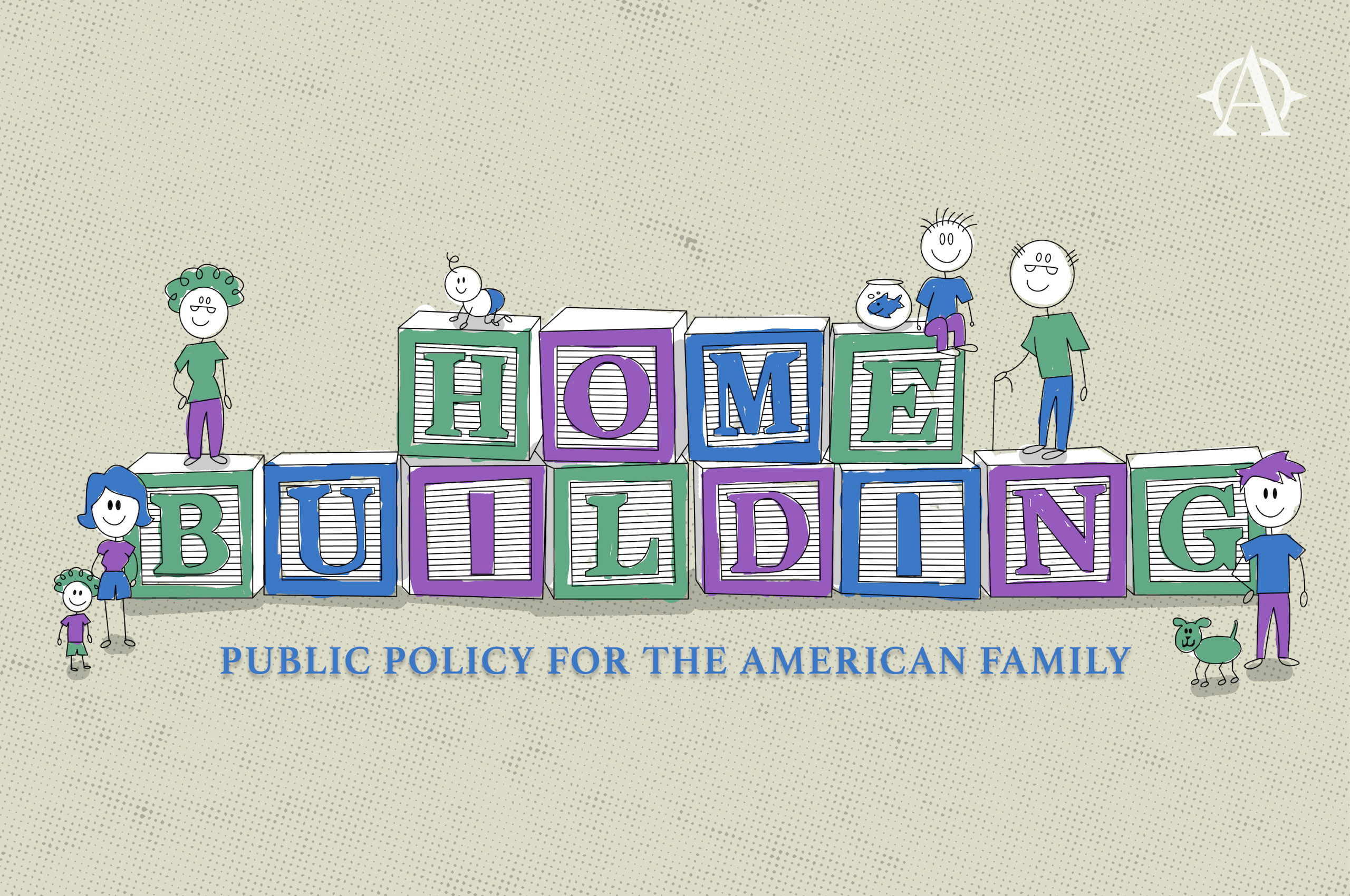

Supporting America’s families is more than a numbers game.
RECOMMENDED READING
The New Right’s pro-family agenda has brought together a powerful coalition capable of getting policy right for American families. But, as is typical of any new political movement, it has also attracted at least a few eccentrics.
Pronatalism, a philosophy focused on increasing the birth rate, has always been a prominent theme in family policy. Enacting the right policies and creating a supportive social environment for American families will help them thrive, which, in turn, will hopefully lead to more children. When stripped of the essential context of the family, however, pronatalism morphs into a numbers game, turning children into mere motes in a dataset.
Malcolm and Simone Collins and their growing family are perhaps the second most prominent proponents of pronatalism after Elon Musk. They are (as Malcolm has put it) “human clickbait.” In addition to being pronatalist, the Collinses are also effective altruists, followers of a Silicon Valley fad ideology that purports to be both hyper-rational and ultra-benevolent. Via their pronatalist foundation, conference, and effective altruist pose, the couple has garnered quite a bit of attention.
According to the Guardian, the Collinses currently have three children with a fourth on the way. They aspire to have a minimum of seven children, but Malcolm has said elsewhere that they’re really shooting for twelve. They have conceived all their children via in vitro fertilization (IVF), and they rigorously test the embryos that they use for traits like IQ and risk of mental illness. After the birth of their fourth child, they may not be able to conceive for a fifth time due to health concerns, so they plan to use a surrogate for future births.
In an article he wrote for the Free Press responding to the criticism generated by the Guardian profile, Malcolm claimed that the only real challenge the couple faces is being tarred as “far-right ideologues who want to usher in dystopia.” On that count, they should have nothing to worry about. What immediately comes to mind when reading about the Collinses and their Valley Forge-based hatchery is not that they are far-right, but that they are not part of the Right at all.
What these and other pronatalists are doing is altogether different from what the New Right is trying to achieve, more akin to an intentional community. Not—to quote Seinfeld—that there’s anything wrong with that! The Amish and Mennonites are a vital part of the social fabric of Pennsylvania where the Collinses call home, and no one demands that they fix the nation. Nor, crucially, do they aspire to. While one might not quibble with the pronatalists’ diagnosis that the fertility rate is a problem, their medicine will not cure this societal ill.
Though dressed up as “New Right,” scientific, and—above all—rational, they are treating having children no differently than the work of a technocrat at the Social Security Administration. Economists can talk about children as an input necessary for the economy or to keep old age pensions afloat. Pose similar arguments to an average parent as a reason that they should have a third or fourth child, and they will be utterly baffled. Propose that those same parents embark on a Collins-esque path, and they will laugh in your face.
The way the Collinses plan to have 7–12 children is extraordinary and extraordinarily expensive. A single cycle of IVF costs anywhere between $15,000–$30,000 and only has about a 23% success rate. While precise numbers on the cost of employing a commercial surrogate can vary, the average price appears to be around $100,000. Putting aside the potential moral turpitude of these practices, this approach isn’t likely in the cards for most people, given the median American income was $74,580 as of 2022.
Of course, that is beside the point. While this is a numbers game, it is not dollars they are using to keep score. The Collinses’ end goal is the number of children produced, and, beyond the very, very specific community of effective altruists who share their worldview, the effort isn’t likely to deliver results. Their hyper-medical and mechanized understanding of conception is alien to most peoples’ views. And the couples’ tendency to spout effective altruism talking points—like how, based on a mashup of science fiction and utilitarian philosophy, the suffering of people alive today is “pretty irrelevant”—is not likely to win new adherents to their cause.
The problem at the heart of a pronatalism unmoored from the context of the family—it should not have to be said—is that children are not widgets, and so long as governments and enthusiasts alike treat them as such, we are unlikely to see more of them. As we’ve written at American Compass, what is needed is a new social compact. One that understands that, because of the strictures of the human condition, the average family begins raising children when they can least afford to do so, and meaningfully addresses that issue with generous public support.
Affordability is the top reason that lower-, working-, and middle-class people cite for not reaching desired fertility. Cash alone will not fix the birth rate, but a reliable benefit targeted at family stability and formation is a key component of addressing the problem. That it presently takes 62.1 weeks for a man earning the median wage to afford the lineaments of middle-class life constrains families financially and essentially mandates a two-earner household structure. Easing this problem will afford families greater flexibility in how they structure their decisions.
Echoing Timothy P. Carney’s recent book, we have a society that is deeply family unfriendly, and we should work to change that. There is a role for policymakers, civil society organizations, and even intentional communities to play, but they must be aiming at the right target. If we can create conditions where families can thrive, children will follow. The New Right understands this, while the eccentrics are missing the point.
Recommended Reading
Escaping the Parent Trap
Addressing America’s fertility crisis happens to be what parents want.
Put Working Families at the Front of the Line for Help
American Compass executive director Oren Cass argues that a policy that sustains people in joblessness is not ultimately anti-poverty.
How To Build Family Policy For The Working-Class Majority
Michael Lind’s Home Building essay on family policy for the working class majority is adapted by the Daily Caller.











